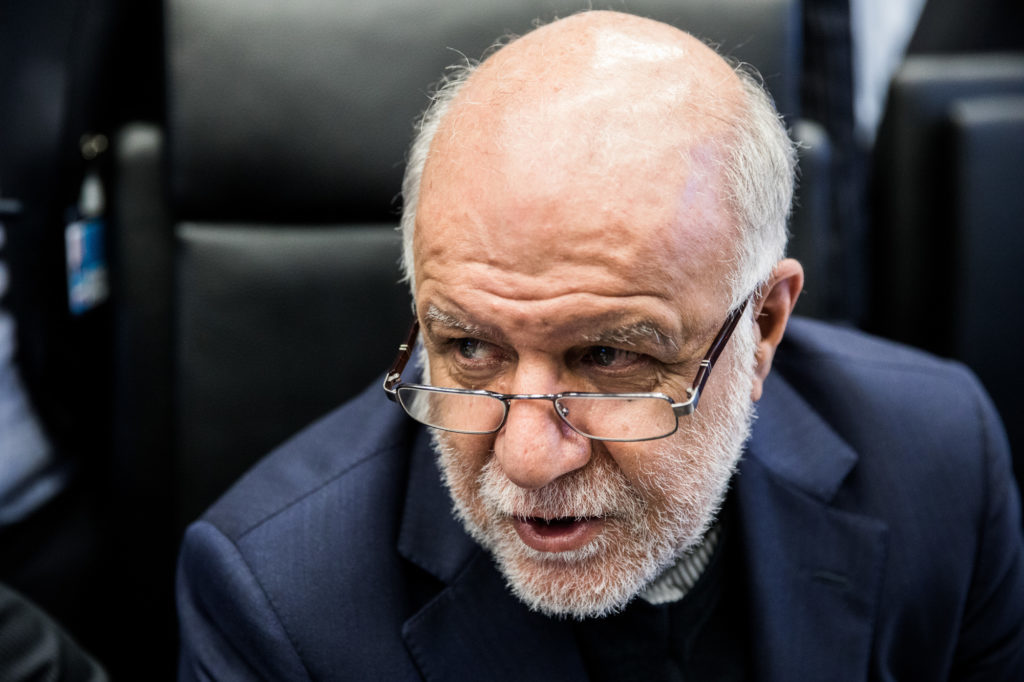
Iran put itself on a collision course with Saudi Arabia at this week’s OPEC meeting, rejecting a potential compromise that would see a small oil-production increase to appease energy consumers.
“I don’t believe in this meeting we can reach an agreement,” Bijan Namdar Zanganeh, the Iranian oil minister, told reporters upon his arrival to Vienna, suggesting the gathering on Friday may end without a deal for the first time since 2011.
The OPEC battle will reverberate through the oil market, where prices have gyrated in recent days, and impact energy stocks and the currencies of major petroleum exporters from Brazil to Nigeria.
Oil prices have surged nearly 75 percent to almost $80 a barrel since the Organization of Petroleum Exporting Countries and allies such as Russia, Kazakhstan and Mexico agreed to cut production by 1.8 million barrels a day in late 2016.
Saudi Arabia, under pressure from U.S. President Donald Trump, wants to unwind some of the cuts by engineering a “moderate” supply boost in the second half of the year. Russia, which aligned with OPEC to cut output nearly two years ago, is pushing for an even larger production hike of 1.5 million barrels a day.
Yet, Iran has so far rejected any increase, including one compromise mooted in private by some OPEC officials for a 300,000-to-600,000 barrels a day hike in the second half of the year. “There’s no need,” Zanganeh said, surrounded by dozens of reporters and television crews.
The Saudi-Iran clash is the toughest diplomatic problem that the kingdom’s oil chief, Khalid Al-Falih, has faced since he was appointed two years ago. Al-Falih, who was initially expected in Vienna early on Tuesday, delayed his arrival until Wednesday.
OPEC takes its decision by unanimity, so the veto threat may leave Saudi Arabia with only the option of assembling a coalition of willing countries to bypass Tehran’s negative stance. Riyadh may also act unilaterally boosting output, as it did in 2011 after a meeting ended without a deal.
Unconstrained
“Saudi Arabia will try to reach consensus, but if that fails I think that Riyadh won’t be constrained and they will put the barrels in the market that they deem appropriate,” said Helima Croft, chief commodities strategist at RBC Capital Market LLC.
Zanganeh said he planned to leave Vienna on Friday immediately after the OPEC meeting, and without waiting for a second gathering that will include ministers from outside the cartel on Saturday. Russian Energy Minister Alexander Novak will participate in the Saturday meeting.
Still, OPEC has a tradition for last-minute deals that keep the often fractious group together. Iran, in particular, has made U-turns in the past, such as when Russian President Vladimir Putin phoned his Iranian counterpart Hassan Rouhani.
Trump has tweeted twice in the last two months complaining about high oil prices and accusing OPEC of being “at it again.” The tweets have irritated several OPEC countries, notably Iran.
“OPEC is an independent organisation not an organisation to receive instruction from President Trump,” Zanganeh said. “OPEC is not part of the Department of Energy of the United States.”